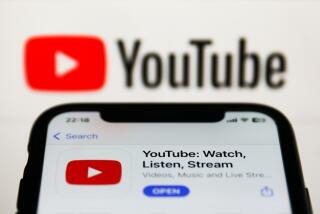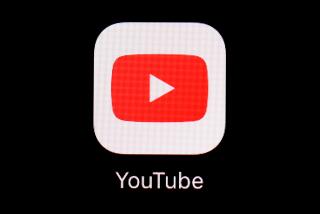MySpace erasing disputed content
- Share via
Internet social networking giant MySpace.com plans to announce today that it has introduced a video-filtering program that should automatically remove copyrighted material from its website.
The pilot program, according to MySpace, which is part of Rupert Murdoch’s News Corp. empire, will begin by weeding out unauthorized content belonging to Universal Music Group and NBC Universal.
The use of copyrighted material on the popular website has led to a major skirmish in recent months after Google Inc. purchased MySpace rival YouTube.
The move is significant because it illustrates that media companies -- including music labels and television programmers -- want to be compensated for use of their material, and they appear to be gaining leverage in their negotiations.
Until now, such websites as MySpace and YouTube took the position that they could legally allow content to stay on their sites unless they received a formal notice to remove the material.
This month, Viacom Inc. flexed its muscle by ordering YouTube to remove 100,000 clips on its site that Viacom said were unauthorized.
Viacom isn’t alone. In November, Universal Music sued MySpace alleging that the site illegally profited from its copyrighted songs and music videos.
With the new program, MySpace said it now is the largest Internet video site to offer free video-filtering to copyright holders. It is using a digital fingerprinting technology licensed from a company called Audible Magic.
Josh Bernoff, principal analyst with Forrester Research, said the MySpace announcement reflected a changing corporate culture, one that seems to want to work more closely with the major entertainment companies.
“They’ve realized that they really have a choice of being part of an anything-goes-pirate kind of culture,” Bernoff said. “But that makes it difficult to negotiate with any media company because the media companies are going to say we don’t deal with pirates.”
But MySpace’s move is not without risk, Bernoff said, because it could ultimately steer away some users who want to post whatever clip they want. That, he said, may send users to competing sites with fewer restrictions.







